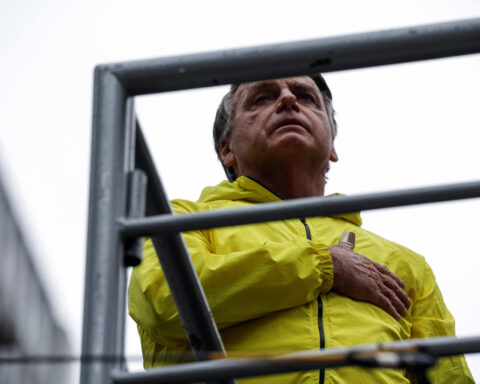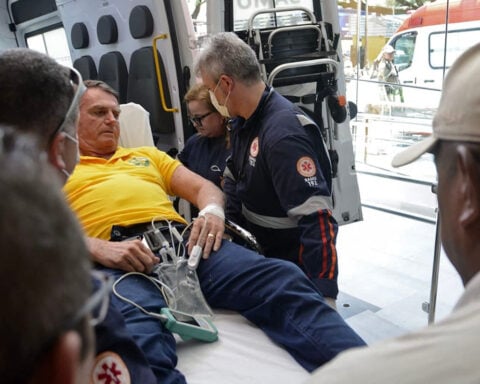Feel like your mind goes blank when you need to focus most? You're not alone. Mental fatigue plagues us all in our distraction-filled world. However, groundbreaking new research suggests refreshing strategies to sharpen concentration and banish burnout.
For over a century, experts theorized our brains drain limited energy like muscles, leading to mental tiredness. But an innovative study upends conventional wisdom. It reveals mental fatigue is largely psychological - and conquerable through a simple yet powerful tactic.
Researchers at the University of Oregon have uncovered goal-setting as the antidote to foggy thinking and wandering minds. Their experiments unveil how smart objectives enhance performance and alleviate exhaustion. The implications could revolutionize how we approach demanding mental tasks.
Nevertheless, an expanding array of studies has started to question this perspective, proposing instead that mental fatigue might be intricately linked to psychological elements such as wandering thoughts and inadequate rewards for cognitive exertion. According to this alternative viewpoint, when individuals immerse themselves in mentally demanding activities, their focus may stray towards more gratifying pursuits or missed opportunities, resulting in a feeling of mental weariness and diminished drive.
To illuminate this enduring dispute, a group of researchers from the University of Oregon initiated a sequence of experiments aimed at examining their proposition that mental fatigue is chiefly a psychological phenomenon amendable through goal-setting. In their initial trial, they engaged 108 undergraduate students in a task prompting them to identify the location of a symbol appearing on a screen at consistent intervals.
Over the course of the 26-minute assessment, participants were intermittently prompted to assess their mental condition, offering crucial insights into their subjective encounters with concentration, diversion, and wandering thoughts. The participants were randomly divided into two groups . Half of them were assigned a particular objective: to maintain reaction times below 400 milliseconds while ensuring accuracy. The remaining half served as a control group and received no specific goal.
The preliminary findings of this experiment yielded a blend of outcomes: participants assigned a goal showcased a decrease in instances of slow reaction times, yet there was no noteworthy enhancement in their peak speed nor a reduction in reported distraction. Nevertheless, undeterred by these initial results, the researchers persisted and honed their methodology for the second experiment, unveiling an innovative modification that would ultimately revolutionize the exploration of mental fatigue.
In the second experiment, the research team adopted a progressive approach by assigning increasingly demanding goals to half of the participants as the test unfolded. Beginning with the objective of sustaining reaction times under 450 milliseconds, the target was systematically lowered to 400 milliseconds and eventually to 350 milliseconds by the experiment's conclusion. This dynamic method of goal-setting produced remarkable outcomes, as participants tasked with these progressively tougher goals exhibited a remarkable 10% enhancement in reaction times compared to those with a fixed goal in the initial experiment.
Furthermore, participants in the second experiment reported fewer occurrences of mind-wandering and exhibited no indications of mental fatigue, even as the task grew increasingly challenging throughout the study. This observation was particularly noteworthy, as it implied that the deliberate implementation of goal-setting strategies improved performance and alleviated the subjective sensation of mental weariness.
To fortify the validity of their discoveries, the research team carried out a third experiment, replicating the procedures of the second study in a face-to-face environment. The outcomes remained steadfastly aligned, reinforcing the premise that mental fatigue is predominantly a psychological occurrence that can be successfully tackled through goal-setting tactics.
The ramifications of this pioneering research transcend the confines of academia, presenting actionable insights for individuals striving to enhance their mental capabilities across diverse domains, ranging from professional endeavors to personal aspirations. The study proposes that by establishing precise, ambitious, and progressively more demanding goals, individuals can sustain their concentration, diminish wandering thoughts, and forestall the detrimental impact of mental exhaustion.
The potency of goal-setting resides in its capacity to furnish a distinct sense of purpose and guidance, directing the mind towards a defined objective and diminishing the propensity for distraction. By segmenting larger undertakings into more manageable, bite-sized goals and offering consistent feedback on advancement, individuals can sustain a feeling of achievement and drive, even when confronted with mentally demanding obstacles.
Additionally, the research underscores the significance of incorporating brief restorative breaks, even as brief as two minutes, to facilitate individuals in re-energizing and preserving their mental capabilities.This finding is especially important in today's fast-paced and high-pressure setting, when the emphasis on continuous output can lead to burnout and reduced efficiency.
As society grapples with the common issue of mental tiredness, the significance of this discovery cannot be exaggerated. This study explores the psychological factors of mental tiredness and offers practical methods to reduce it, potentially changing how we deal with mentally challenging activities and enhancing our overall health.
The groundbreaking discoveries of this research have already sparked additional inquiry and implementation in numerous domains, spanning education, sports psychology, organizational behavior, and personal development. As a growing number of individuals and organizations embrace the efficacy of goal-setting and integrate these methodologies into their routines, we can anticipate a future where mental fatigue ceases to be a paralyzing obstacle but instead becomes a hurdle that can be successfully addressed and surmounted.
Nonetheless, it's crucial to acknowledge that goal-setting isn't a universal remedy, and its efficacy can fluctuate based on individual disparities and the complexity of the given task. Additional research is imperative to delve into the intricacies of goal-setting and its interplay with other elements that could impact mental fatigue, including motivation, personality traits, and contextual circumstances.
Moreover, the research highlights the importance of an extensive public discussion about the importance of mental health and the ways to help people deal with the difficulties of modern life. By creating an environment that values mental health and providing the necessary tools and support for people to thrive, we can promote a stronger and mentally healthy society.
Ultimately, the innovative study carried out by this group of dedicated researchers has provided a new way of understanding the nature of mental tiredness and the significant influence of setting goals. By questioning conventional beliefs and presenting actionable methods for sustaining concentration and efficiency, this study holds the potential to revolutionize how we tackle mentally demanding endeavors and elevate our general welfare.
As we welcome these new ideas and include them in our daily habits, we can look forward to a time when mental tiredness is no longer a huge obstacle but instead becomes a challenge that can be dealt through setting goals strategically and understanding the psychological processes involved. The journey to a mentally stronger and more robust society begins with understanding that we all can overcome mental tiredness, and by utilizing the power of our thoughts, we may achieve impressive accomplishments.

 Trump has begun another trade war. Here's a timeline of how we got here
Trump has begun another trade war. Here's a timeline of how we got here
 Canada's leader laments lost friendship with US in town that sheltered stranded Americans after 9/11
Canada's leader laments lost friendship with US in town that sheltered stranded Americans after 9/11
 Chinese EV giant BYD's fourth-quarter profit leaps 73%
Chinese EV giant BYD's fourth-quarter profit leaps 73%
 You're an American in another land? Prepare to talk about the why and how of Trump 2.0
You're an American in another land? Prepare to talk about the why and how of Trump 2.0
 Chalk talk: Star power, top teams and No. 5 seeds headline the women's March Madness Sweet 16
Chalk talk: Star power, top teams and No. 5 seeds headline the women's March Madness Sweet 16
 Purdue returns to Sweet 16 with 76-62 win over McNeese in March Madness
Purdue returns to Sweet 16 with 76-62 win over McNeese in March Madness








